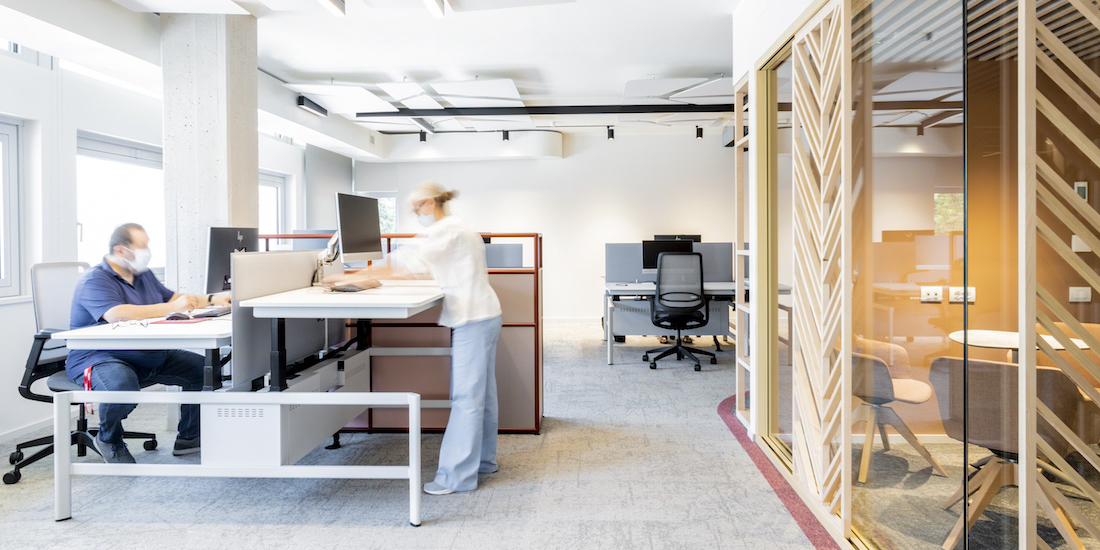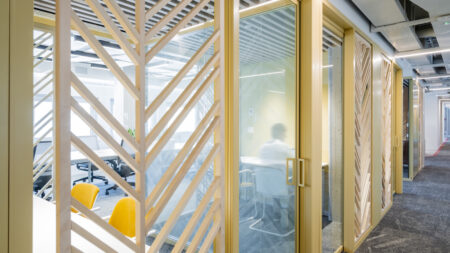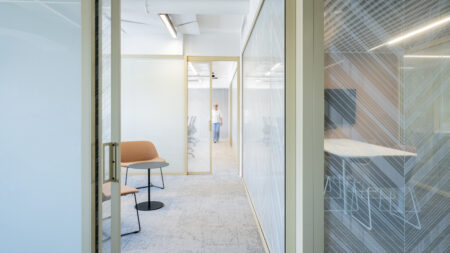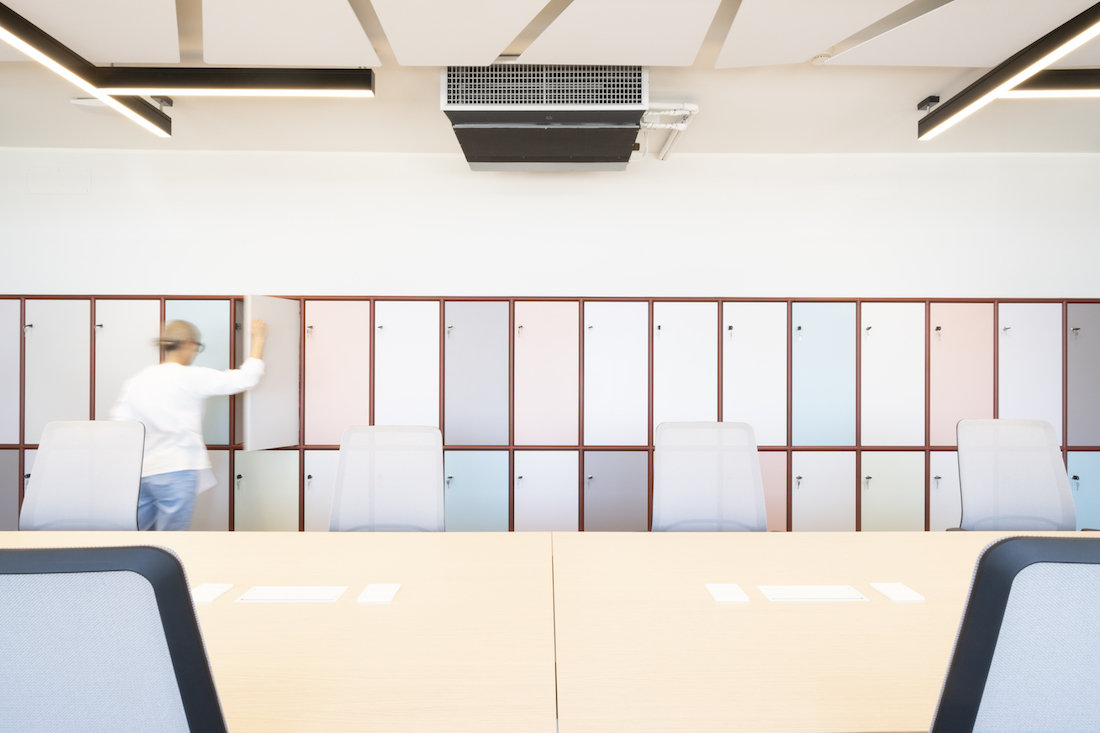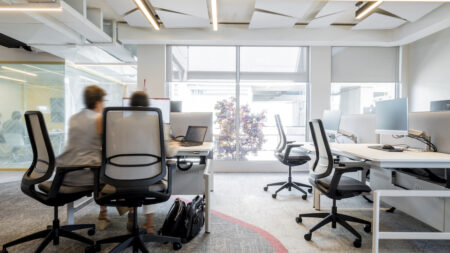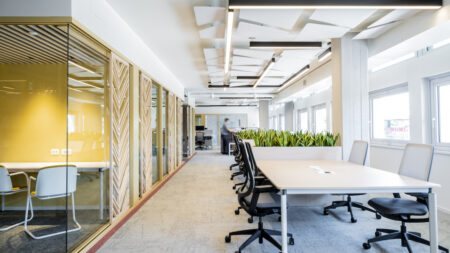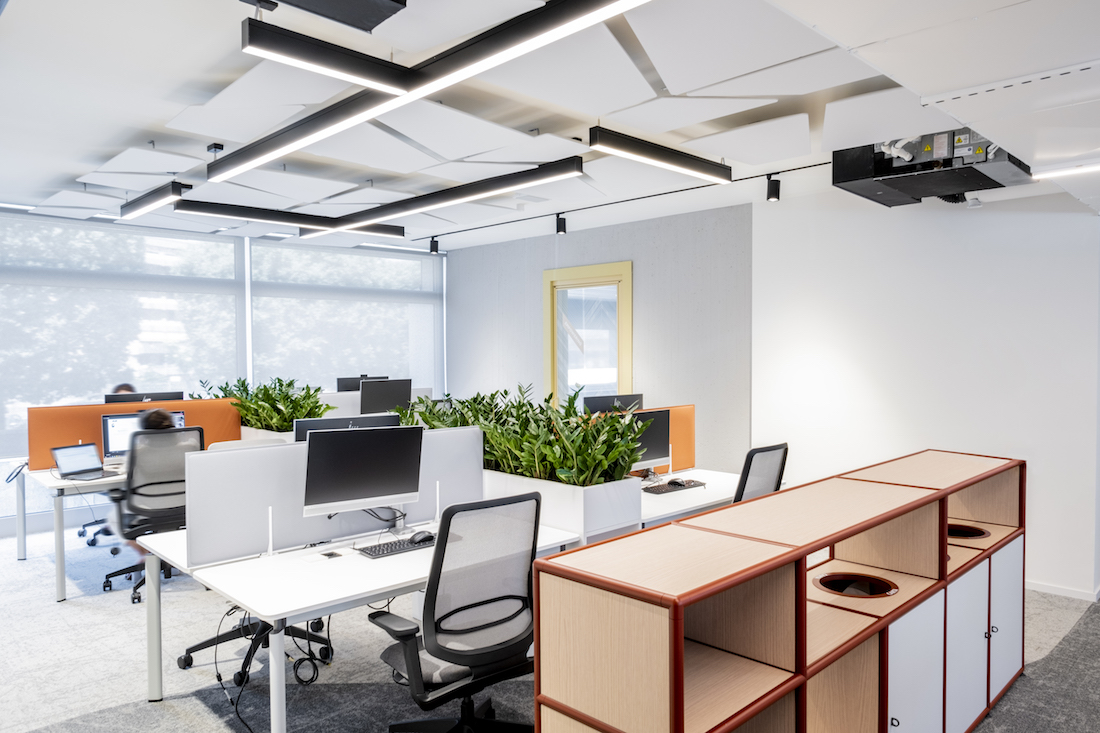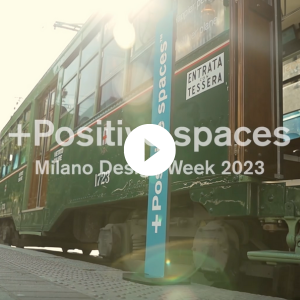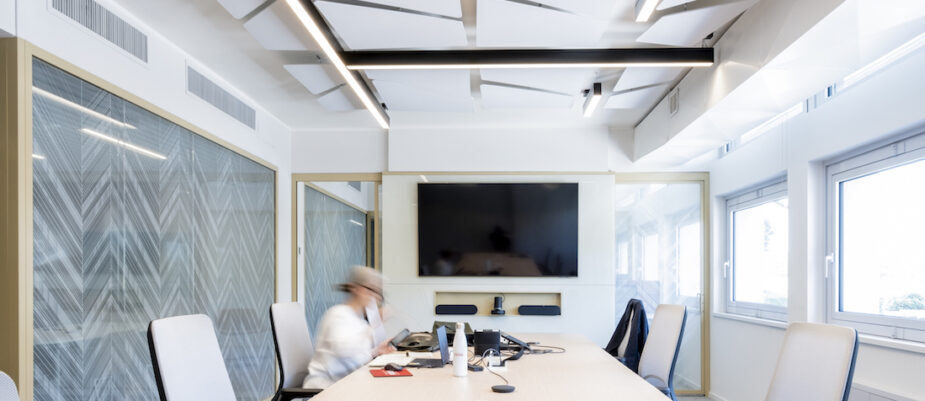
The project by GBPA Architects and Revalue for the Birra Peroni headquarters in Rome takes shape in a historical and social moment featured by great changes and new values that the workplace must interpret.
It responds to the group’s goals in terms of sustainability, inclusion and employee wellbeing and creates places capable of bringing together real and digital, generating positive experiences.
The refurbishment, which also involved the building and the plant engineering, was carried out in six months by Tetris Italia, a JLL Group’s company, as general contractor.
The design approach of GBPA Architects and Revalue starts from the goal set by the client «Creating Meaningful Connections» putting environmental sustainability at the center and applying the basic concepts of the “new technological humanism” which promote a culture open to diversity, safety, physical and psychological wellbeing, collaboration, satisfaction and employee engagement.
The recently completed first phase is part of a broader renewal plan that Birra Peroni will complete by 2024. Consistent with Birra Peroni’s Legacy 2030 plan aimed at achieving the “zero emissions” goal by 2030 in all production sites , the restructuring of the Rome headquarters aimed at improving energy performance with a 45% reduction in water consumption, 35% savings on energy consumption and a 33% reduction in CO2 emissions.
The building is therefore anointed with obtaining the Leed Gold certification.
The spaces are therefore designed to respond to future developments and the new needs of Flexible and Hybrid Working.
The concept of office ecosystem is given shape, which perfectly embodies “The idea of the office of the future, which from a place to render a service becomes an enabling platform that enhances individuals and promotes and catalyzes relationships that generate ‘significant connections’” the designers explain.
Building 11 therefore represents the anticipation of “a model of generative, technological, non-homogeneous and plural space, which favors a fluid and transparent arrangement of the workplace by combining a balanced mix of open scenarios, down to the smallest detail to guarantee concentration and comfort, and spaces for relationships and aggregation that stimulate interaction, sharing and the exchange of ideas”.
In the development of the project, “co-creation” activities were implemented to stimulate the participation of all employees, through Ambassadors, in charge of giving their contribution in the planning.
The project team, made up of designers and internal figures at Birra Peroni, has really put “people at the centre” to create engagement and improve the quality of the workplace experience.
The five key attributes identified by the team to summarize the identity of the new corporate headquarters are: Simple, Modern, Inclusive, Identity, Sustainable for Man and the Environment.
The high densities and battery configurations that have characterized the layouts of the last decade are therefore banned: a perception of levity characterizes the working areas designed in every detail to respond to the heterogeneous needs of different users: sit-stand workstations adjustable in height and fixed workstations, collaborative tables, areas for concentration and privacy, ergonomic seats, adjustable monitor holder arms, huddle room and phone booth for meetings and video calls (glazed walls and standard furnishings by Tecno).
The offer of alternative spaces to the classic desk is very wide and also includes a room dedicated to contemplation and silence.
To ensure the wellbeing of employees, particular attention was paid to lighting (IGuzzini) and acoustic comfort which reaches high levels thanks to a careful study of the materials, all strictly eco-sustainable: modular textile flooring (Interface); ceiling panels and acoustic screens positioned on the desks (Caimi); felt slatted ceilings in meeting rooms (Hunter Douglas).
At the conclusion of the renovation plan, the project foresees that the core of the new Birra Peroni office ecosystem will be the restaurant and a pub thanks to their potential as “social condensers” and activators of corporate identity values.
These environments will be conceived as a large reconfigurable hub, not only a space for refreshment and relaxation, but also the perfect venue for informal meetings, events, training, brainstorming, collaboration and socialization activities.

